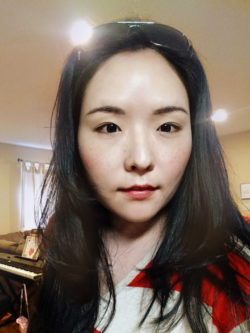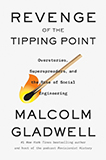I was first diagnosed with major depression in college, at the age of 20.
Since then, I have gotten better and I have gotten worse. I have been in and out of therapy. I have been on and off meds.
But I have never been with the same therapist for more than a few months.
Until now, that is. Currently, at the age of 36 — 16 years(!) after my first diagnosis — I have met someone with whom I truly click with, who actually gives me advice and not just the “So how does that make you feel?” spiel that so many other therapists fall back on, who isn’t afraid to call me out on my B.S., gives me things to think about at home, and takes my insurance.
I have been seeing her for 1.5 years now.
Because I have stuck with her for this long, she noticed something — something my prior therapists and doctors had missed, probably due to my unhealthy habit of stopping therapy and meds as soon as I start to feel better.
She noticed that I have periods of hypomania, occasionally making an appearance between bouts of depression.
I had been misdiagnosed.
I suffer from Bipolar II Disorder, not depression.
Learning about the disorder, it all started to make sense. Those sudden bursts of energy, that feeling that I can take on anything. Sleepless nights because I was inspired to do something, anything. Self-destructive, risky, impulsive behavior…
But more often than not, depression. For women with bipolar II, depression tends to dominate, while men have roughly equal numbers of hypomanic and depressive episodes.
I have updated my psychiatrist with this new diagnosis and we are in the process of changing my meds accordingly. The problem with most meds for bipolar disorder is that they make you gain weight — and I was strictly against that. So we’re trying a drug dubbed “the model drug” because patients tend to lose weight on it, but it also can make you dumber. Whatever. I’m willing to sacrifice a few I.Q. points to shed some pounds.
So there you have it. My therapist asked me if having a new, corrected diagnosis made me feel any different. “It really shouldn’t,” she said. “You’re still you, and you’re not defined by this label.”
But I do feel different. It actually feels refreshing. Freeing, even.
I’m happy. Who knows, this may be a hypomanic episode talking. But I feel like bipolar II makes better sense than depression. Something more solid. Something that can be conquered.







 I like books, gadgets, spicy food, and art. I dislike shopping, hot weather, and the laws of entropy. Although I am a self-proclaimed computer nerd, I still have a love for handbags and makeup... and I am always teetering on high heels. To learn more about me, visit the
I like books, gadgets, spicy food, and art. I dislike shopping, hot weather, and the laws of entropy. Although I am a self-proclaimed computer nerd, I still have a love for handbags and makeup... and I am always teetering on high heels. To learn more about me, visit the 


I’m so glad your current doctor was finally able to diagnose you properly. I hope the new meds and the knowledge of your actual condition help! You are amazing, can’t wait to read where your journey takes you next.
Thank you! Your encouragement means a lot to me. 🙂
I’m rooting for you. This is hard, but you will manage it and you will own it!!
Thanks Mindy! I hope you’re doing well too!
What is the name of the medicine you are experimenting?
It’s topiramate, the generic form of Topamax. It’s primarily used to treat seizures and migraines, but has shown some promise with mood disorders too. We decided on it because I also get migraines, and binge-eating is one of my side effects of my hypomanic episodes — topiramate takes care of all three! So far, it’s going well.
That is great! No matter what the label, it’s so important to get the proper clinical help that you need. I am now a member of NAMI in an effort to support my friends, my family and my community. If your family members don’t understand, tell them to take the Family to Family classes offered by NAMI. It will change their views about illnesses that stem from the brain as it is educational. As an Asian American, there is way too much misunderstanding about how the brain functions, but it is getting better with people like you, who have the courage to share something personal.